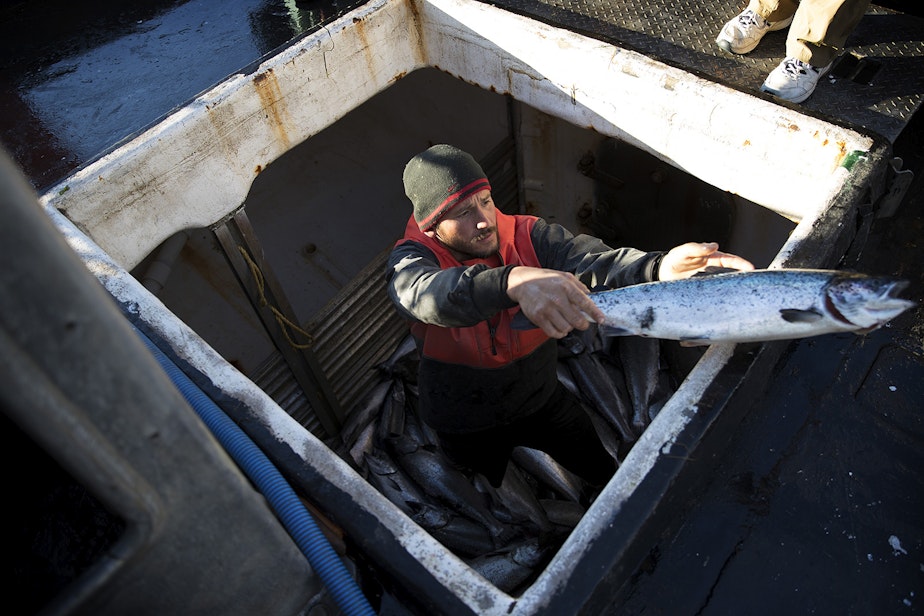Fugitive salmon may be dead, but the court case is just getting started

A Washington state conservation group is suing the owners of an Atlantic fish farm that failed over the summer.
Wild Fish Conservancy says the company negligently allowed the salmon escape to happen, which would be a Clean Water Act violation.
More than 100,000 non-native Atlantic salmon escaped into Puget Sound when Cooke Aquaculture's pens near Cypress Island collapsed.
Aside from the spill, the Wild Fish Conservancy also contends Cooke violated its Clean Water Act responsibilities over the past five years. Attorney Brian Knutsen is representing the conservancy.
Knutsen: “Permits require that Cooke Aquaculture implement pollution prevention plans at all eight of its facilities. Cooke Aquaculture has over the last five years failed to implement these plans in a manner that's required by its clean water act permits.”
Sponsored
He said the lawsuit seeks to hold Cooke responsible for the fish escape in August and for allegedly failing to follow its pollution plan.
Knutsen: "They're supposed to keep track of how many fish go in and how many die from various causes, and therefore keep a mass balance of how many should be in there, and the plans that we have seen in place are not reporting released in the manner required by the permit."
The suit has potential to lead to hefty fines for the fish company, because Wild Fish Conservancy says each escaped fish is a pollutant.
Under the Clean Water Act, the maximum daily fine per violation is $52,414. If that’s levied for 100,000 salmon, the penalty could run in the billions.
However, Knutsen said he doesn’t expect the court to enforce that high of a fine, and that his client is not asking for the court to.
Sponsored
Kurt Beardsley with Wild Fish Conservancy said non-native Atlantic fish pose a dire threat to the food sources and spawning habitat of native salmon and steelhead.
Most of the Atlantic fish may be dead, however. The Washington state Department of Fish and Wildlife says "It would seem, from a biological point of view, that the likelihood of many more fish surviving is diminishing by the day. Without a consistent food source, their fat reserves can only last so long before they become food for crabs and other bottom feeders."
DFW spokesperson Bruce Botka says they have seen no evidence, to date, that escaped fish developed an appetite for traditional salmon forage.A spokesperson for Cooke Aquaculture said they "are reviewing the lawsuit and have no comment at this time."

